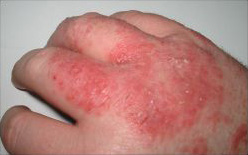 Image via WikipediaI would agree to this one, though I'm not that old yet; just starting on the road to being physically old, huh!
Image via WikipediaI would agree to this one, though I'm not that old yet; just starting on the road to being physically old, huh!-----
ANDRÉ PICARD
PUBLIC HEALTH REPORTER— From Friday's Globe and Mail
There is much angst these days about the impact of the aging population on health-care utilization and spending.
But new research is adding a twist to the discussion, concluding that it is the rise in people living with chronic health conditions like hypertension, diabetes and depression that is driving up health costs, not aging per se.
The data, published Thursday by the Canadian Institute for Health Information, show that patterns of health-care use are similar at age 45, 65 and 85 for people with no chronic health conditions.
And the more chronic illnesses a person suffers from – regardless of age – the more they use health services such as visiting a GP or specialist, consulting a pharmacist, going to emergency and being admitted to hospital.
“Once you get to three or more conditions, utilization really increases,” said Greg Webster, director of primary health-care information at CIHI. People with three or more chronic conditions make, on average, six times more health-care visits than those with no chronic conditions, the report shows.
Mr. Webster noted, however, that while aging is not the principal cost driver, the likelihood of a person having a chronic illness does increase with age. Three in four Canadians over the age of 65 suffer from at least one chronic health condition; by contrast, one in five people under the age of 24 live with a chronic illness.
Among seniors, one in four have no chronic health problems, and one in four have three or more; the balance have one to two persistent health issues. It is noteworthy that those proportions change very little between ages 45 and 85.
“We may erroneously expect that, as we get older, we will get sicker, but the data show that is not necessarily the case,” Mr. Webster said. “We maybe need to change the mindset that aging means illness.”
Mr. Webster said there is also an important message to be found between the lines of the data: One of the keys to controlling health utilization and spending is to prevent the onset of chronic illnesses. “We have a choice: Get on top of this today and prevent multiple chronic conditions, or leave things as they are and a lot of people are going to need a lot of health care,” he said.
The new study shows, however, that there are significant gaps in preventive care.
Only two in five people over the age of 45 reported having talked to a health professional about what they could do to improve their health or prevent illness (measures like quitting smoking, increasing exercise or limiting alcohol consumption).
The new data suggest that patients with multiple chronic conditions are not managed particularly well, either, especially when it comes to medications. Bill Hogg, research director at the University of Ottawa’s Élisabeth Bruyère Research Institute, noted that patients with three or more chronic conditions reported taking an average of six prescription drugs regularly, twice as many as those with only one chronic condition.
The big drug users were more than twice as likely to experience a side effect requiring medical attention. Yet less than half of seniors with chronic conditions reported that their doctor reviewed their medications and explained potential side effects at least some of the time. “Strategies to reduce the number of medications a senior is prescribed, when possible, can result in better compliance with medication regimens and lead to a better quality of life,” Dr. Hogg said.
The new study did not look specifically at spending, but earlier data from CIHI shows that per capita health spending increases steadily with age. It rises from $2,286 per capita for those age 15 to 64 to $5,828 for those age 65 to 69, then $8,078 for those 70 to 74, $10,898 for those 75 to 79 and $18,160 for those 80 and older.
Seniors, who make up 13 per cent of the population, account for about 44 per cent of health spending. But patients with chronic conditions account for about two-thirds of all health spending.
Taken from The Globe and Mail; source article is below:
Being old doesn’t mean being sick, research shows











